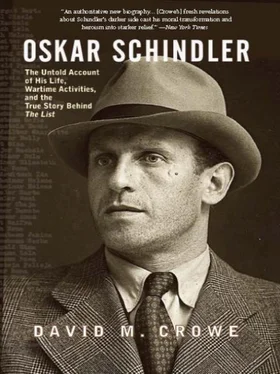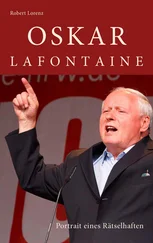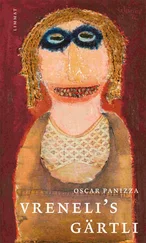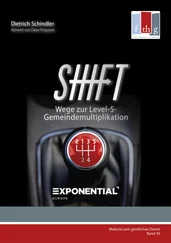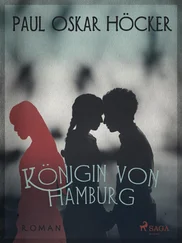What we do not know is the nature of his crime because the specific records on his case were either lost or destroyed. There is even some question about the accuracy of the dates. According to Dr. Jitka Gruntová, the foremost Czech expert on Schindler, at least one Czech historian, Milan àtyrch, claims that Schindler was given this sentence on November 5, 1938, not January 21, for his espionage crimes. However, the criminal register of the regional Criminal Court in Brno lists January 21 as the date of the sentence. It is unlikely that the Czechs would have sentenced him to prison on the eve of his parole as part of the Munich Agreement. Given his past history of public disorderliness and drunkenness, Oskar could have been imprisoned for crimes involving such misbehavior. It is also possible that he was arrested and jailed as a warning from officials concerned about his Abwehr activities. We will never know. 20
Frustrated by his unemployment and legal problems, Oskar went to Berlin in 1931 to find work. Later, he admitted that he became interested in communism while in the German capital, though this statement might have been an attempt to neutralize the pro-Nazi claims against him during his arrest and interrogation for spying in 1938. After his return from Germany, Oskar bought a chicken farm. He quickly lost interest in this venture and became a representative of the Jaroslav Simek Bank of Prague. He worked for the Simek Bank for six years selling government property. In January 1938, he left this firm and began to sell government property on installments for a businessman in Brno. 21
Oskar’s conduct and lack of direction frustrated Emilie. She felt he constantly “lied and deceived” her, but she was always taken in by his boyish pleas for forgiveness. She admired his kindness and willingness to help others. When she complained to Oskar’s mother about his behavior, Fanny said, “Oskar is now married, and it is his wife’s obligation to educate him, my dear Emilie.” Emilie hoped things would improve after the couple moved from the Schindler home to one of their own on 16 Baderova Street, a house that had belonged to a well-to-do Svitavy family. Emilie described the new home as a mansion complete with elegant furnishings and crystal chandeliers. 22
The new home had little impact on their marriage, which had not been strong. Once Oskar got back on his feet financially, he became involved in an affair with an old school friend, Aurelie Schlegel, who worked as a secretary for his father. Aurelie bore Oskar two children out of wedlock. Edith was born in 1933, and Oskar Jr. two years later. It is difficult to determine what type of relationship Oskar had with Aurelie after the children were born, though if his relationship with them after the war is any indication, he probably neglected both of them. After the war, Oskar told Ruth Kalder Göth, Amon Göth’s wartime mistress, that he had determined that the boy, Oskar Jr., was not his son. It is therefore not surprising that Aurelie raised both children alone. 23
At the end of World War II, Oskar Jr. disappeared when the Russians occupied Svitavy. According to Oskar Jr.’s sister, Edith Schlegl, her brother was serving in a German military unit when the Soviets captured him. More than likely, he was serving with a Hitler Youth (HJ; Hitlerjugend ) unit. During the last year of the war, such units had sprung up all over the Greater Reich as part of the Volkssturm (People’s Militia), which tried to enlist all able-bodied men in the desperate attempt to defend Hitler’s collapsing empire. Though most of the young men in these groups were in the fifteen-to-seventeen-year-old range, there were also boys as young as eight serving in some of them. According to one Allied report in the summer of 1945, rumors abounded about the ongoing sabotage activities of feared HJ “Werewolf” commando units in the former Sudetenland. 24
Aurelie Schlegel, who changed her name to Schlegl after World War II, tried to locate Oskar Jr. through the Red Cross, but could never find him. According to Edith Schlegl, her mother, who died in Germany in 1997, never got over the loss of her son. They both attended Oskar’s funeral in Frankfurt in 1974, though Edith said she had had little contact with her father after the war. In fact, few people knew of Oskar’s children. Consequently, everyone at his funeral in Frankfurt in 1974 was shocked to see a large flower arrangement with the following words on it: “Alles Liebe von deinem Sohn und deiner Tochter” (Love from your son and daughter). Needless to say, Oskar’s affair with Aurelie Schlegel damaged his marriage to Emilie, who knew of the illegitimate children. 25Emilie knew about the affair and heard rumors about the two illegitimate children. She wrote in her memoirs that she discovered in the 1990s that Oskar’s illegitimate son was living in Argentina. She said that his mother had “mistreated him terribly” and that he had wandered “aimlessly through the streets of the town, left to his own devices and eccentric behavior.” 26
In the midst of his affair with Aurelie Schlegel, Oskar’s beloved mother died after a two-year illness. His sister, Elfriede, had cared for her during this period. Afterwards, she married Herr Tutsch, an official with the state railway system, and they lived in a “very big apartment furnished to him by the railway.” Hans Schindler, who had abandoned his wife just months before her death, then sold the family home and moved into an apartment of his own. Oskar never forgave his father, who died in 1945, for leaving his mother. Thomas Keneally says that Oskar openly criticized his father among family and friends for his treatment of Fanny. Yet he also seemed “blind to the resemblance between his own faltering marriage and his parents’ broken one.” 27In many ways, Oskar had already become much like his father. 28
In 1941, several friends arranged for a reconciliation between Oskar and his father; knowing that Hans would be at a certain public coffee house in Svitavy, they took Oskar there. Oskar approached his father and offered his hand, which Hans accepted. From then on, whenever Oskar was in Svitavy, he visited his father; and until Hans died in 1945, Oskar sent his father a bank draft of RM 1,000 every month. According to Oskar, this sum allowed his father “to live a pleasant existence, to buy the medicines which he needed, to have the help he needed in the apartment, and not to have to worry about the economic structure of his own life.” Oskar’s grandmother, aunt, and other relatives still lived in Svitavy, and he tried to visit them every four to five months. 29
Oskar never talked much about his sister, though he did reveal in a 1964 interview that she died in 1945 “as a result of her treatment at the hands of the Russians when they occupied the country.” Elfriede Tutsch bore three children, who survived the war. One of his nieces, presumably Traude Ferrari, who became close to Emilie, worked in the sales department of an automobile firm, first in Düsseldorf and later in Italy. Another niece held a similar position in Düsseldorf, and Oskar’s nephew was a supervisor for a textile wholesale company in Ingoldstadt. 30
Oskar never discussed the impact his mother’s death had on him, though it seemed to have stirred his restless spirit. The same year, he joined Konrad Henlein’s Sudeten German Party and made his first contacts with the German military’s counterintelligence branch, Abwehr. 31These first moves into the world of politics and pro-German activity would forever change Oskar Schindler’s life. Throughout his life, Schindler remained close to his Sudeten German roots. His work for Abwehr in the immediate years before World War II was in the Sudeten portions of Czechoslovakia, and most of his operatives were Sudeten Germans like himself. He also made frequent visits to Germany. The contacts and skills he learned as an Abwehr agent were key to understanding his later successes in Kraków and Brünnlitz. It was no accident that in 1944 he chose to move his Kraków factory to Brünnlitz, which is just south of Svitavy. His ties to the Sudeten portion of the former Czechoslovakia were strong, and he had hoped to rebuild his life there after the war. When that hope faded, he was bitter and expressed strong resentment towards Czechoslovakia’s last prewar president, Edvard Beneš, whom he called a “Scharlatan.” He told Fritz Lang that Beneš had weakened Sudeten German rights before the region was annexed by Germany in 1938. After Oskar returned to Germany from Argentina in the late 1950s, he became involved with the Sudeten German community in Frankfurt. Some of his more liberal German friends were taken aback by Oskar’s ties to the exiled Sudeten German community in West Germany, which they regarded as extremely conservative. Yet to understand Oskar Schindler and his ties to Abwehr and Germany, one must look briefly at the Sudeten Germans and their troubles in Czechoslovakia between 1918 and 1938. This was a special world to Oskar Schindler and events there during the interwar years deeply affected him throughout his life. 32
Читать дальше
